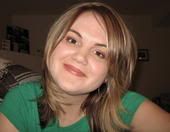Our Journey with Infantile Spasm Syndrome: Part 2

One of several EEGs Josiah received at the hospital. He was so good!
We took Josiah to the emergency room on July 23 because we were noticing what appeared to be seizures. Every few hours (especially after he had just awakened), he would roll his eyes to the top of his head and stiffen his arms and legs several times in a row. At the ER, they treated him with oxygen for lethargy and admitted him to the children's hospital.
The next morning, we met our neurologist. (We'll call him Dr. G.) After observing Josiah over the course of a few days, getting an MRI and a spinal tap to rule out brain injury and meningitis, and viewing the results of Josiah's EEG, Dr. G diagnosed him with Infantile Spasm Syndrome. At first this sounded like good news to us, since ISS is an epilepsy that only affects infants and usually fades away sometime between age 2 and 4 (more later on why it wasn't actually good news). Dr. G explained that the best time to diagnose ISS is 2-3 weeks after the onset of symptoms. It seemed that we were on the outside edge of that window, but it was difficult to know, since Josiah's "fooler" stomach bug had kept us from discovering the ISS symptoms sooner.
Dr. G explained that the primary treatment for ISS—a hormone therapy that involved high-dose injections of a steroid called ACTH—held the best success rate for full developmental recovery (80 percent of those treated) when administered early. However, if ACTH didn't work, the next set of anti-seizure treatments were only 20-30 percent effective for stopping the spasms.
And stopping the spasms was our priority. The doctor explained that while these seizures were not causing brain damage, they were stunting Josiah's development, which at his age was just as serious if it continued. But he reassured us that, "In these cases, it's months, not days or even weeks that make a difference." He instructed us to track the frequency of Josiah's spasms throughout the day (and during the night when we noticed them) and made a plan for starting him on ACTH within the next few days.
That night, I looked up Infantile Spasm Syndrome on the Internet. What I read was terrifying (enter the bad news about the ISS diagnosis). I learned that uncontrolled, Infantile Spasm Syndrome causes mental retardation. By the time spasms fade away on their own around 2 or 4 years old, it is too late to regain the development that has been lost. In some worst-case scenarios I found on forums, parents were caring for teenagers who had only developed to a 3-month level. (I wish someone would have shown me this story about a family who had a positive outcome after their son had ISS.) I realized quickly why ISS is considered a "catastrophic form of childhood epilepsy."

"ET Phone Home." Josiah sported this oxygen monitor throughout his stay.
As we prepared to start Josiah on ACTH, I hoped and prayed that we hadn't caught it too late. When you're a parent, an 80 percent success rate isn't good enough. And, What if it doesn't work? was the question that shot fear through my entire being. My husband and I have a strong faith in God and a personal relationship with Jesus Christ. But these are the situations where the rubber meets the road concerning whether you really believe what you say you believe. I know both Kevin and I struggled during the first few days just with the sadness of what was happening. We understood that bad things happen to people—and sweet babies—who don't deserve them. But we also had no reason to question God's goodness or faithfulness. And our journey of faith with Josiah was just beginning ....



0 Comments:
Post a Comment
<< Home